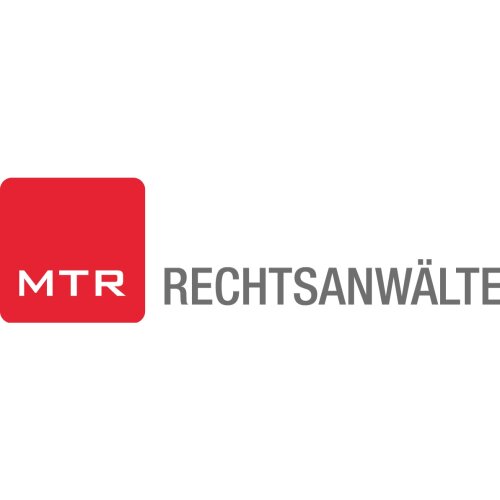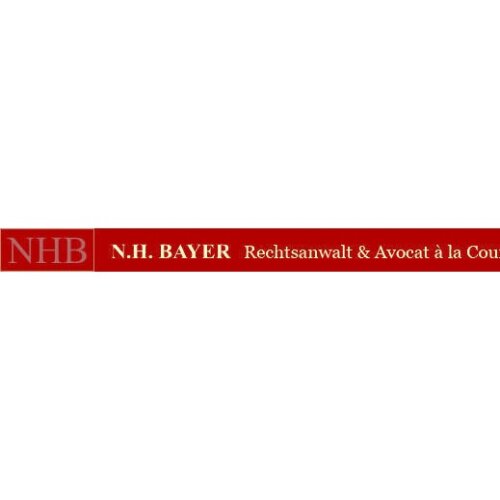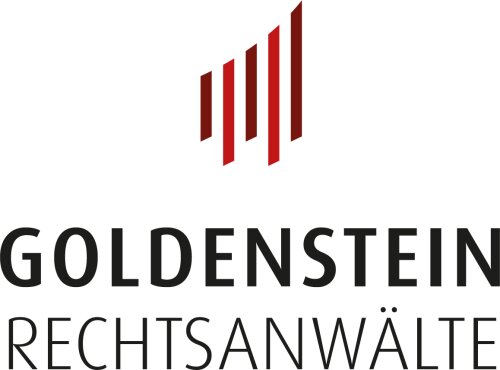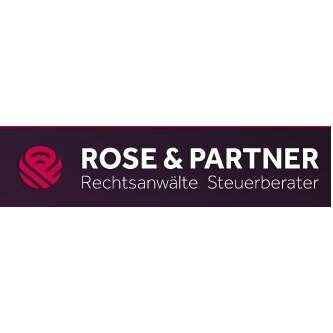Best FDA Law Lawyers in Berlin
Share your needs with us, get contacted by law firms.
Free. Takes 2 min.
List of the best lawyers in Berlin, Germany
About FDA Law in Berlin, Germany
FDA Law refers to the legal regulations and frameworks that govern the approval, marketing, import, export, manufacturing, distribution, and safety of food, pharmaceuticals, medical devices, and cosmetics. While the term "FDA" refers specifically to the United States Food and Drug Administration, in Germany and the European Union similar regulatory bodies and legal requirements exist. In Berlin, the enforcement and oversight of these rules fall under national and EU laws, as well as local Berlin regulations. The primary authority in Germany is the Federal Institute for Drugs and Medical Devices (BfArM), supported by the local health departments ("Gesundheitsämter") in Berlin.
Why You May Need a Lawyer
FDA Law in Berlin is highly complex due to the interaction between local, national, and EU regulations. Common situations where legal expertise is vital include:
- Launching a new pharmaceutical, medical device, or food product in the German market
- Navigating the approval and licensing process with German or EU authorities
- Ensuring packaging, labeling, and advertising are compliant with German law
- Dealing with product recalls or safety concerns raised by authorities
- Responding to inspections or enforcement actions from regulatory agencies
- Handling disputes regarding intellectual property linked to regulated products
- Assisting with cross-border imports and exports under German and EU law
- Challenging or appealing regulatory decisions that may limit your business
Local Laws Overview
Berlin operates under the comprehensive regulatory framework of Germany and the European Union. The core legal aspects relevant to FDA-type matters include:
- Medicinal Products Act (Arzneimittelgesetz, AMG): Governs the development, approval, manufacturing, and distribution of pharmaceuticals.
- Medical Devices Act (Medizinproduktegesetz, MPG): Regulates medical devices, including conformity assessments and safety standards.
- Food and Feed Code (Lebensmittel- und Futtermittelgesetzbuch, LFGB): Sets requirements for food safety, labeling, and hygiene.
- EU Regulations: Such as the General Food Law (Regulation EC 178/2002) and the Medical Device Regulation (EU MDR 2017/745), directly applicable in Germany.
- Local Enforcement: Berlin’s Gesundheitsämter and state authorities supervise compliance, carry out inspections, and enforce recalls within the city.
Strict penalties apply for non-compliance, and regulatory scrutiny has increased in recent years to ensure consumer safety and public health.
Frequently Asked Questions
What is the main regulatory body for FDA Law in Germany?
Germany’s main authority is the Federal Institute for Drugs and Medical Devices (BfArM), supported by additional bodies such as the Federal Office of Consumer Protection and Food Safety (BVL) for food products, as well as local health departments in Berlin.
Do I need my product approved before selling in Berlin?
Most pharmaceuticals, medical devices, and certain food products require formal approval, registration, or notification before entering the German market.
Are US FDA approvals recognized in Germany?
No, US FDA approvals are not automatically valid in Germany. Products must meet German and EU requirements and go through their own approval procedures.
What are the penalties for violating FDA Law in Berlin?
Penalties include fines, product seizures, recalls, and potentially criminal prosecution for severe violations. The severity depends on the nature and consequences of the infringement.
How can I ensure my labeling meets German standards?
Labels must comply with German and EU rules, including accurate ingredient lists, safety warnings, and usage instructions. Consulting a lawyer or regulatory specialist is recommended to avoid costly errors.
Can I advertise medical devices or supplements online in Berlin?
Yes, but strict advertising regulations apply, especially regarding health claims and consumer protection. Misleading statements can lead to legal action.
What should I do if a product recall is ordered?
Immediately comply with the recall, notify customers, and coordinate with authorities. Legal guidance ensures you meet all obligations and minimize liability.
Is it possible to challenge a regulatory decision?
Yes, decisions by regulatory authorities can often be appealed. Lawyers experienced in FDA Law can help you navigate the appeals process.
Do German laws differ from broader EU regulations?
While EU regulations often apply directly, Germany has additional national laws and may interpret regulations differently. Local legal expertise is essential.
Who enforces FDA Law in Berlin?
Local health departments ("Gesundheitsämter"), along with state and federal agencies, supervise and enforce compliance with FDA-type laws in Berlin.
Additional Resources
- Federal Institute for Drugs and Medical Devices (BfArM): Main authority for pharmaceuticals and medical devices
- Federal Office of Consumer Protection and Food Safety (BVL): Oversight of food safety
- Berlin Health Department (Gesundheitsamt Berlin): Local enforcement and advice
- German Medical Devices Association (BVMed): Industry support and guidance
- Chamber of Industry and Commerce (IHK Berlin): Information and support for business compliance
- European Medicines Agency (EMA): Approval and oversight of medicines for the EU
Next Steps
If you require legal assistance with FDA Law in Berlin, start by gathering all relevant documents about your product, including technical files, labels, and correspondence with authorities. Seek out a qualified lawyer or legal firm specializing in pharmaceutical, medical device, or food law who understands both national and EU regulations. Prepare a list of specific questions or problems you face to make your consultation efficient. Many lawyers offer an initial assessment to help you decide on the best course of action. Stay proactive, as regulatory compliance is crucial for your business success and public health assurance.
Lawzana helps you find the best lawyers and law firms in Berlin through a curated and pre-screened list of qualified legal professionals. Our platform offers rankings and detailed profiles of attorneys and law firms, allowing you to compare based on practice areas, including FDA Law, experience, and client feedback.
Each profile includes a description of the firm's areas of practice, client reviews, team members and partners, year of establishment, spoken languages, office locations, contact information, social media presence, and any published articles or resources. Most firms on our platform speak English and are experienced in both local and international legal matters.
Get a quote from top-rated law firms in Berlin, Germany — quickly, securely, and without unnecessary hassle.
Disclaimer:
The information provided on this page is for general informational purposes only and does not constitute legal advice. While we strive to ensure the accuracy and relevance of the content, legal information may change over time, and interpretations of the law can vary. You should always consult with a qualified legal professional for advice specific to your situation.
We disclaim all liability for actions taken or not taken based on the content of this page. If you believe any information is incorrect or outdated, please contact us, and we will review and update it where appropriate.
















